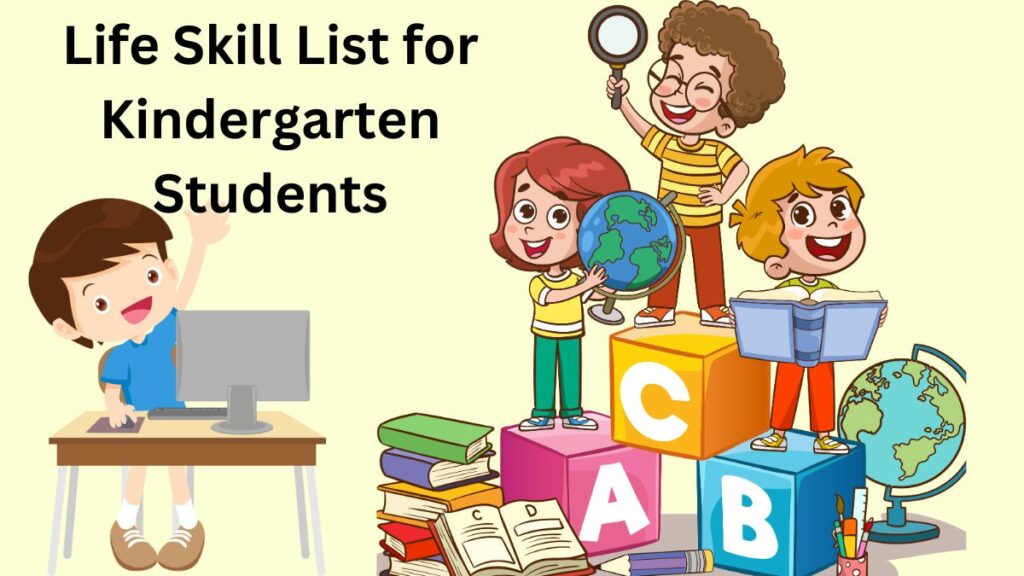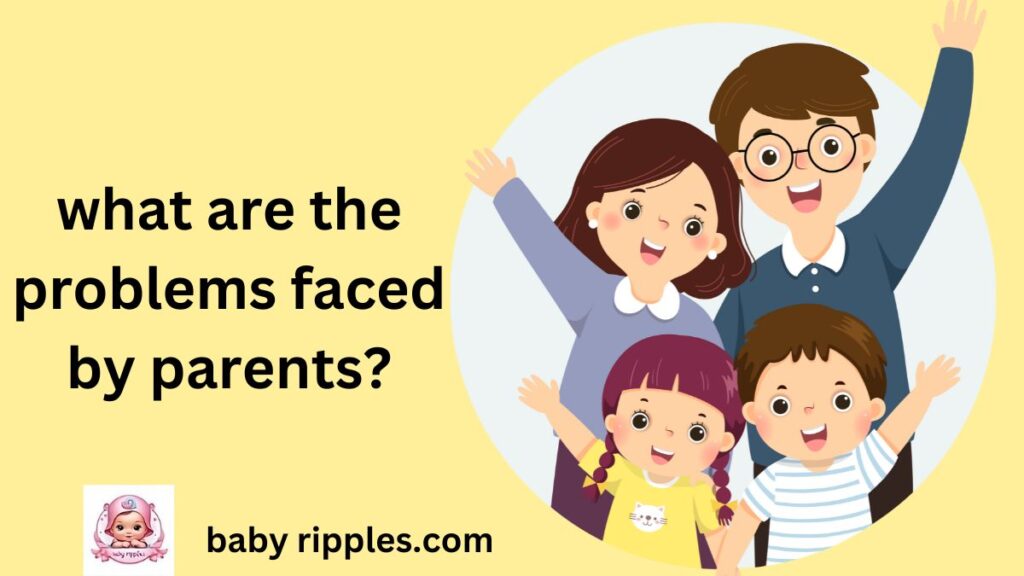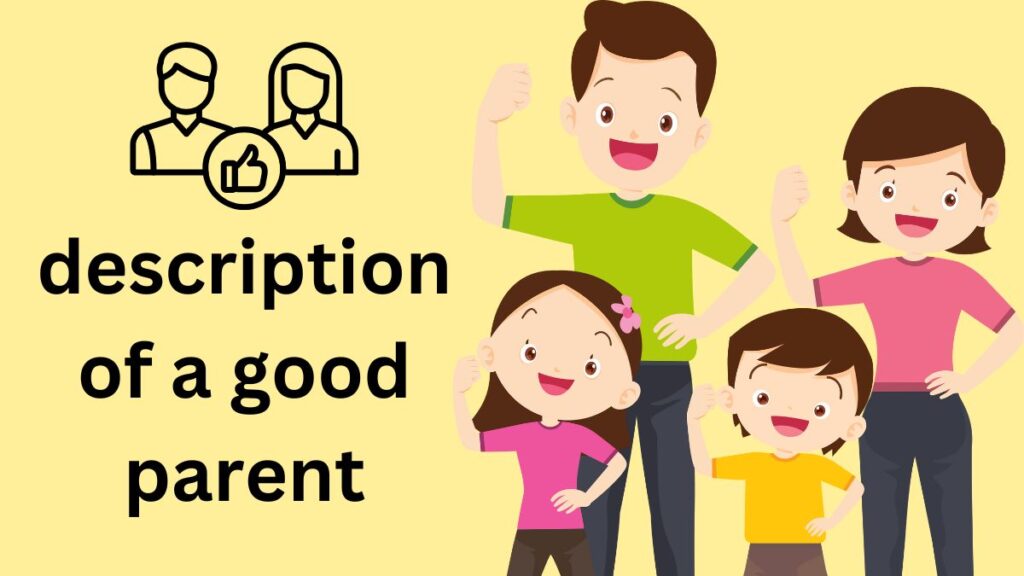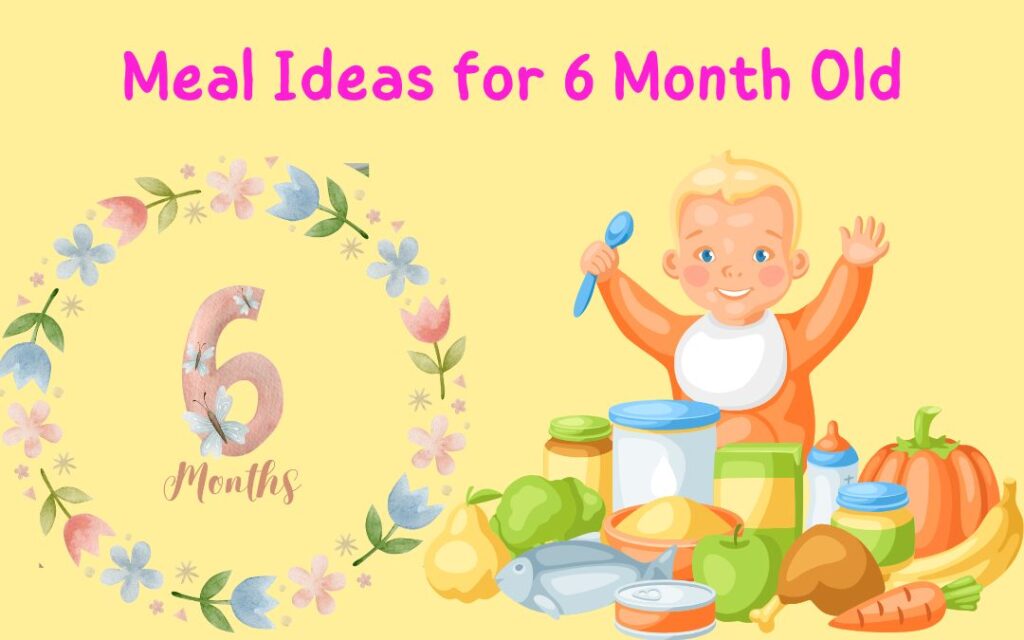Teaching young children life skills is just as important as teaching them to read, write, and count. These abilities provide kids with the groundwork they need to grow up to be responsible, independent individuals. However, how can you begin imparting these vital abilities at such an early age? In this context, the qualities of a good parent come into play. A good parent nurtures, guides, and encourages their child’s growth in a supportive environment. In this tutorial, we will look at a life skill list for kindergarten students and offer detailed suggestions on how to teach them in engaging, interactive ways.
Why Are Life Skills Important for Kindergarteners?
Early life skills development equips kids with the abilities they need to overcome obstacles in the real world. Children that possess abilities like communication, teamwork, problem-solving, and personal accountability become more adaptive and thrive at home and in school. A strong foundation in age-appropriate life skills offers every child the opportunity to develop into a self-assured, compassionate adult who can manage life’s ups and downs.
.
Core life skill list for kindergarten students
This is a list of kindergarten-level life skills activities that span a variety of skill levels. Young children can enjoy learning by being taught these age-appropriate skills in an entertaining manner.
1. Personal Responsibility and Independence
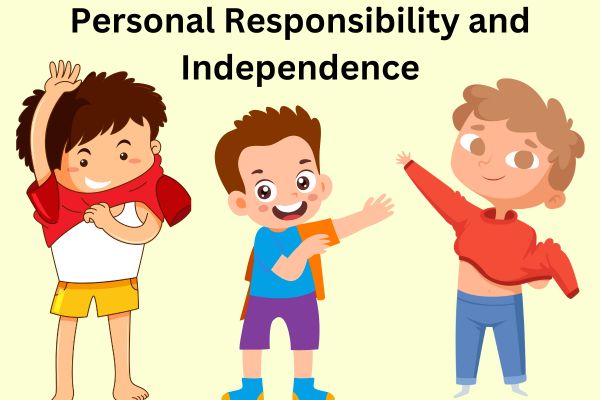
For kids, learning how to care for themselves is a major turning point. They can start to comprehend basic daily duties and routines at the kindergarten age.
Methods of Instruction:
• How they dress themselves: Encourage kids to choose their outfits, put them on, and try tying their shoes, zipping, or buttoning them. To add some fun, set up a “dressing up” area with several ensembles!
• Toy Cleaning: Teach children that it is their duty to clean up after themselves. Turn it into a competition to see who can clean up the fastest.
Items to Encourage Self-Sufficiency
Simple dressing instructions, kid-friendly shoe fasteners, or easy-to-use storage bins can help these routines go more smoothly and inspire children to take charge of their assignments.
2. Communication Skills

Children who communicate well are better able to express themselves and comprehend others, which lays the groundwork for positive social connections.
Methods of Instruction:
• Practice Using Words: Encourage children to communicate their feelings using words. When they are frustrated, for instance, encourage them to say, “I’m upset because…” rather than exhibiting a bodily reaction.
Play games like “Simon Says” to improve your ability to listen and follow directions. Additionally, this improves concentration and comprehension of taking turns during discussions.
Suggested Communication Tools
Emotion flashcards, storybooks, and visual aids are useful resources for teaching young children how to identify and express their emotions.
3. Basic Safety Awareness

Kindergarteners can begin learning about safety via basic, daily routines, which is a crucial life skill for children of all ages.
Methods of Instruction:
• Emergency Contacts: Provide children with their home address and emergency phone number. Regular practice will help students retain this knowledge.
• Street Safety: Teach children to always hold an adult’s hand when crossing the street and emphasize the importance of looking both ways before doing so. It is crucial to practice these abilities in a secure setting.
. Tools for Safety:
To help make safety an enjoyable subject for young students, think about utilizing kid-friendly ID bracelets or kid-specific safety manuals.
4. Social Skills

For kindergarteners, building healthy relationships with others is an essential life skill. Children who learn social skills are better able to communicate, form friendships, and develop empathy.
Methods of Instruction:
• Sharing and Taking Turns: To emphasize the ideas of sharing and respecting others’ personal space, use activities that call for sharing, including board games or building blocks.
• Showing Kindness: Teach kids to say “please” and “thank you,” and emphasize the value of using polite language. Children may also find it easier to comprehend these social interactions when role-playing is used.
. Activities to Develop Social Skills in Kindergarten Students
Think about cooperative games or team-building exercises that emphasize collaboration, sharing, and acknowledging one another’s accomplishments.
5. Problem-Solving and Decision-Making
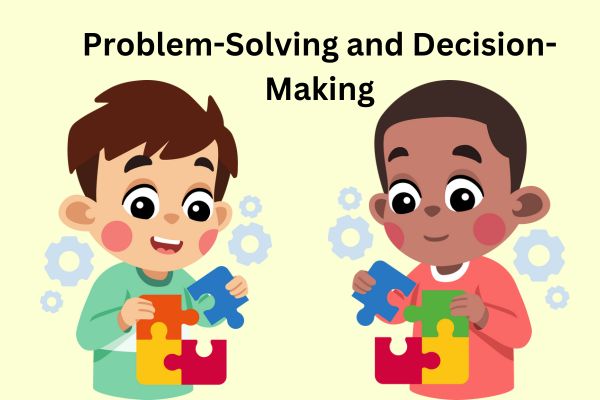
Resilience and independence depend on having the ability to solve challenges and make decisions. Early exposure to these abilities can prepare kids for success in obstacles down the road.
Methods of Instruction:
• Brain games and puzzles: Critical thinking exercises, such as matching games or puzzles, teach kids how to approach problems logically.
• Choosing Between Options: Give kids the freedom to decide on basic decisions like which book to read or what snack to eat. Their confidence and decision-making abilities are enhanced as a result.
Beneficial Items
Age-appropriate puzzles, building blocks, and matching games are examples of educational toys that give kids enjoyable methods to practice problem-solving techniques.
6. Basic Hygiene and Self-Care
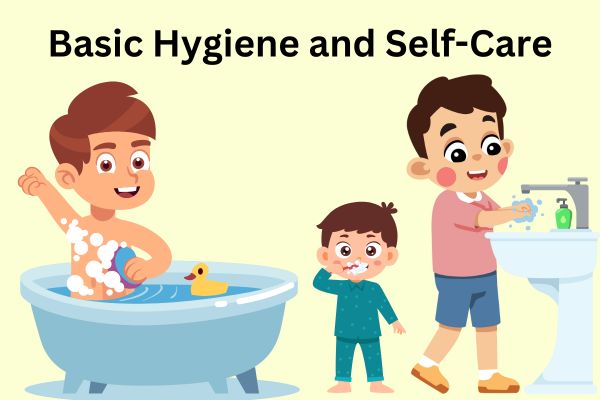
Early instruction in fundamental hygiene practices can support children’s health and self-esteem.
How to instruct:
Practice good handwashing habits by teaching children the correct technique. Make it enjoyable by singing a song, and make sure they wash for the entire twenty seconds.
Establish a tooth-brushing chart and give kids rewards for brushing their teeth twice a day. Encourage them to brush for the proper amount of time by using a timer or music.
Items to Support Personal Hygiene
Hygiene practices can be made interesting and youngsters can be encouraged to continue these habits on their own by using kid-friendly hand soap and entertaining toothbrushes.
7. Emotional Regulation
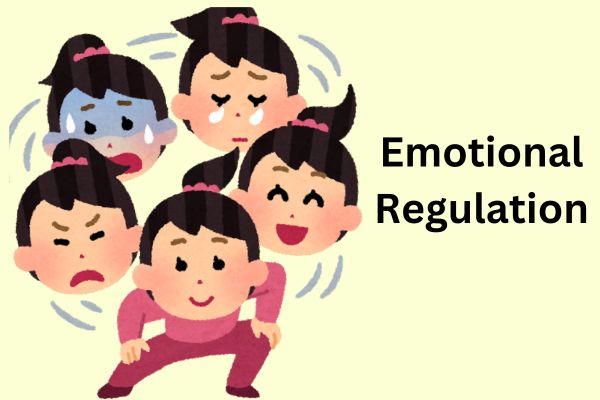
Controlling one’s emotions is essential for young children. Kindergarteners frequently experience strong emotions, and learning how to control them can enhance their wellbeing.
Methods of Instruction:
The use of calm-down techniques Provide kids with breathing techniques or a “calm-down corner” where they may go to unwind when they’re feeling stressed.
• Recognizing Feelings: Children can learn to identify various emotions and discuss good ways to express and cope with them by using stories or drawings.
Instruments for Managing Emotions
Use cuddly animals that kids can grasp onto when they need consolation, emotion books, or calm-down jars.
8. Time Management and Routine Building

Children who comprehend routines and fundamental time concepts feel safer and are able to better manage their time when they get older.
Methods of Instruction:
• Daily Routines: To assist kids comprehend how the day goes, set up a morning and bedtime routine. To make it simpler for children to follow, you may use visual schedules.
• Simple Time ideas: Introduce kids to time ideas like “one hour” or “fifteen minutes” using timers or clocks.
Tools for Time Management
Kids can feel more in charge of their day with the use of visual timers and basic daily planners.
Conclusion
It doesn’t have to be a chore to teach young children life skills; both the youngsters and the adults mentoring them can find enjoyment in it. Each of these abilities builds a well-rounded foundation and increases children’s independence, self-assurance, and competence. Incorporating kindergarten life skills exercises into your child’s daily routine not only gets them ready for school but also positions them for success in all facets of life. To help children embrace their abilities and love studying, keep in mind that a little encouragement goes a long way.
Start Teaching Life Skills Today!
Examine the suggested resources to make teaching these skills simpler and more interesting. Your child will be well on their way to mastering this list of life skills for kindergarteners and feeling secure in their increasing independence with each little session!
Frequently Asked Questions about life skill list for kindergarten students
1. What are the most important life skills for kindergarten students?
Personal responsibility, basic hygiene, communication, safety awareness, and social skills are the most crucial life skills for kindergarteners. These fundamental abilities support children’s development of self-reliance, constructive social interactions, and self-care awareness.
2. How can I make learning life skills fun for my child?
Learning life skills may be fun when done through interactive exercises, games, and storytelling. Children can find these abilities interesting and rewarding when they practice sharing through board games, solve problems with puzzles, or brush their teeth with a reward chart.
3. At what age should I start teaching life skills?
Although life skills can be taught as early as preschool, kindergarten is a perfect time to start teaching them in a more systematic way. It is the perfect moment to establish these habits because children can comprehend fundamental safety procedures, social skills, and routines at this age.
4. How can I help my child learn basic hygiene routines?
The secret is consistency. Establish routines for brushing your teeth, washing your hands, and getting dressed. To make these exercises enjoyable and simple to follow, incorporate music or visual aids such as charts or timers. Kids can also be inspired to love self-care by a routine chart or entertaining hygiene products
5. How do life skills help kids in the classroom?
Children with life skills are more independent, socially adept, and adaptive. Children can follow classroom procedures, get along with peers, and handle obstacles well if they develop skills like communication, problem-solving, and responsibility. Their intellectual and social success is facilitated by this foundation

